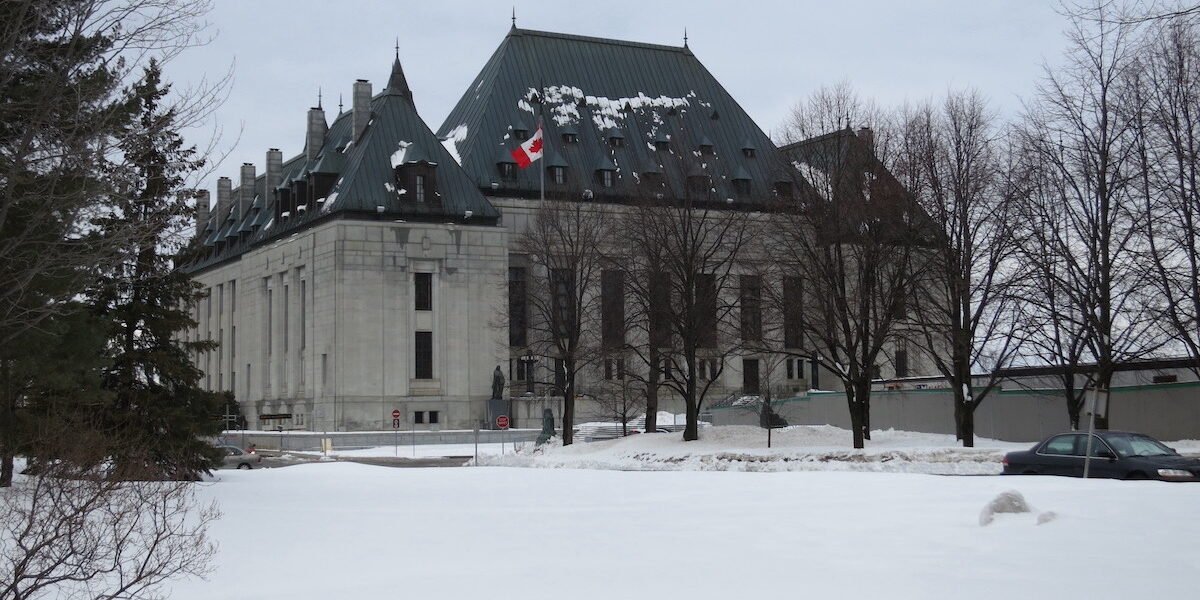Another day, another fatuous statement from Alberta United Conservative Party (UCP) attacking the Trudeau Government.
This time the news hook for the UCP’s fatuity was the ruling by a Federal Court of Canada justice that the Liberal Government’s use of the Emergencies Act on Valentine’s Day 2022 to clear the streets of Ottawa infringed on the Charter rights of the so-called Freedom Convoy protesters who occupied the nation’s capital for nearly a month and blockaded several border crossings, causing billions of dollars of economic harm.
Well, that’s better from the UCP’s perspective than talking about the issues that bedevil our province on their watch. Among them the UCP’s inability to reverse the steep decline of our public health care system; the embarrassing “Tylenot” scandal; the deadly addictions crisis; homelessness; outrage over the scheme to seize the Canada Pension Plan; and untrustworthy oil price estimates that may yet sink the last provincial budget, to name just a few.
“Since Day 1, Alberta has been clear that the federal government’s decision to invoke the Emergencies Act during the COVID-19 pandemic violated the constitutionally guaranteed rights of Albertans,” began the homily attributed to Premier Danielle Smith and Justice Minister Mickey Amery that was published Tuesday on the Alberta Government’s official website.
This fails to mention then UCP municipal affairs minister Ric McIver’s February 5, 2022, letter to the feds pleading for Ottawa’s help to clear the blockade at Coutts, which the federal government did with the help of the Emergencies Act.
In fairness, it is true, as McIver insisted later when he was called on it, that his letter never actually mentioned the Emergencies Act. But even so, no matter who you are, you really can’t have it both ways.
“This is another example of the Federal Court ruling against the federal government’s unconstitutional practices,” the joint statement huffed, giving the UCP’s expert communications specialists yet another opportunity to complain about those plastic straws.
Getting to its key point, the statement went on: “We are disappointed that the federal government has indicated it will be appealing the decision.”
Explaining the federal decision to appeal, Deputy PM Chrystia Freeland said Tuesday, “The safety of individual Canadians was under real threat … Our national security was under real threat – our national security, including our economic security.”
This is indisputable. But it is also important to remember that Canadians were deeply divided at the time, and continue to be today, about the appropriateness of the federal government’s response to the real threats presented by the occupiers and blockaders.
Both sides have taken the matter to the courts, as is appropriate in a society that respects the rule of law, to settle the matter.
Given the persistence of this division in our society, surely the most appropriate course is to take the matter to the highest court in the land and let a panel of Supreme Court Justices have the final word.
Otherwise, whether you love or hate the Federal Court decision, the matter remains essentially unresolved.
Never mind the irony of a provincial government addicted to the use of unconstitutional measures issuing such a statement, if the use of the Emergencies Act was really unnecessary and “a dark and dangerous precedent,” as Smith and Amery insist, isn’t the best way to settle the matter once and for all in the country’s highest court?
One final note, I noticed today a perfectly respectable and intelligent commentator arguing on social media that since the federal government didn’t use the then-new Emergencies Act to end the Oka Crisis in 1990, this is evidence the act ought not to have been employed in 2022.
While there are some important differences – for example, the indigenous protesters at Oka did not have a plan to overthrow the country’s democratically elected government – the 78-day blockade did cause major inconvenience to residents of suburbs south of Montreal.
But anyone who thinks this argument has merit should first reacquaint themselves with the violent gong show created by the Quebec and federal governments as a response to the standoff.
I would suggest that the logical conclusion is the opposite: The Oka crisis would have been settled more quickly, with less violence and harm, and with an appropriate analysis afterward had the Emergencies Act been used.
Looking forward and back, a couple of observations:
Certain obvious conclusions suggest themselves about the attack Tuesday on Edmonton’s City Hall by a person shooting what appeared to be a military-style rifle, tossing home-made firebombs, and wearing body armour. But I’m going to do the prudent thing and thank God no one appears to have been hurt while we all await more information on the shooter.
I will add only two historical notes:
(1) It is remarkable that we remember the name of Joseph Stalin’s deputy, Vyacheslav Mikhaylovich Molotov, to this day every time someone throws one of these homemade incendiary weapons. The use of the Soviet foreign minister’s name in this manner was not a compliment, it should be noted. The expression Molotov cocktail was coined by the Finns in 1939.
(2) If it made sense for the Harper government to ban the presence of then British MP George Galloway from Canada in 2009 on the spurious grounds that he was a threat to national security when in fact the problem was that immigration minister Jason Kenney disagreed with him, surely the same action could be taken against the odious Tucker Carlson, with whom Smith is expected to share a stage tonight.



